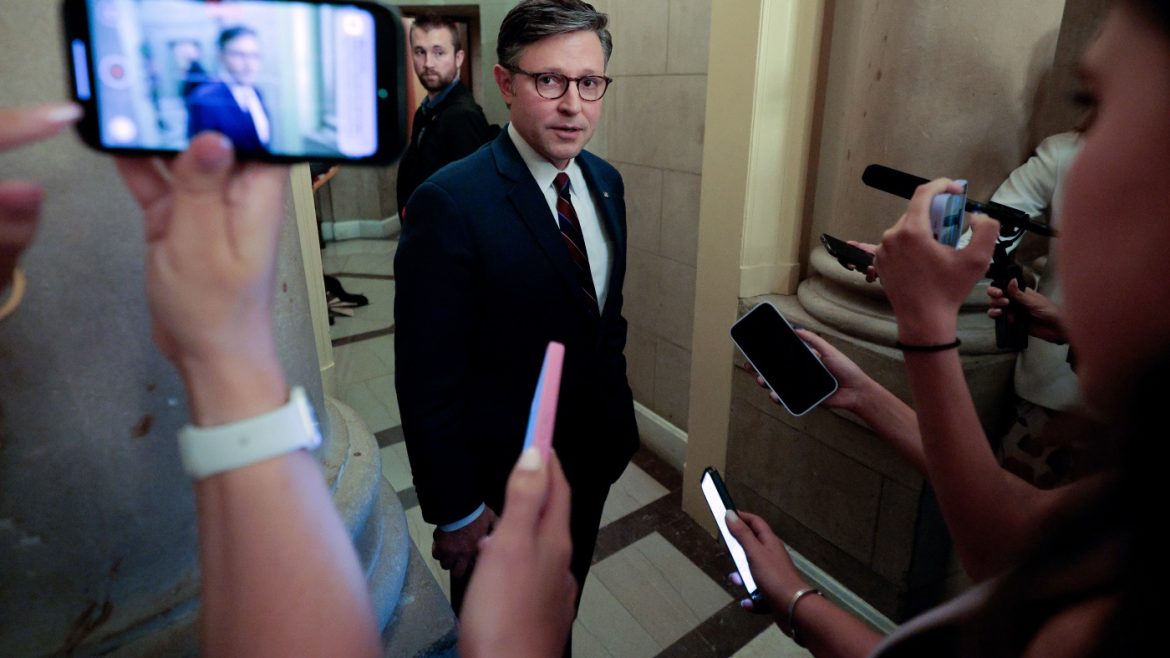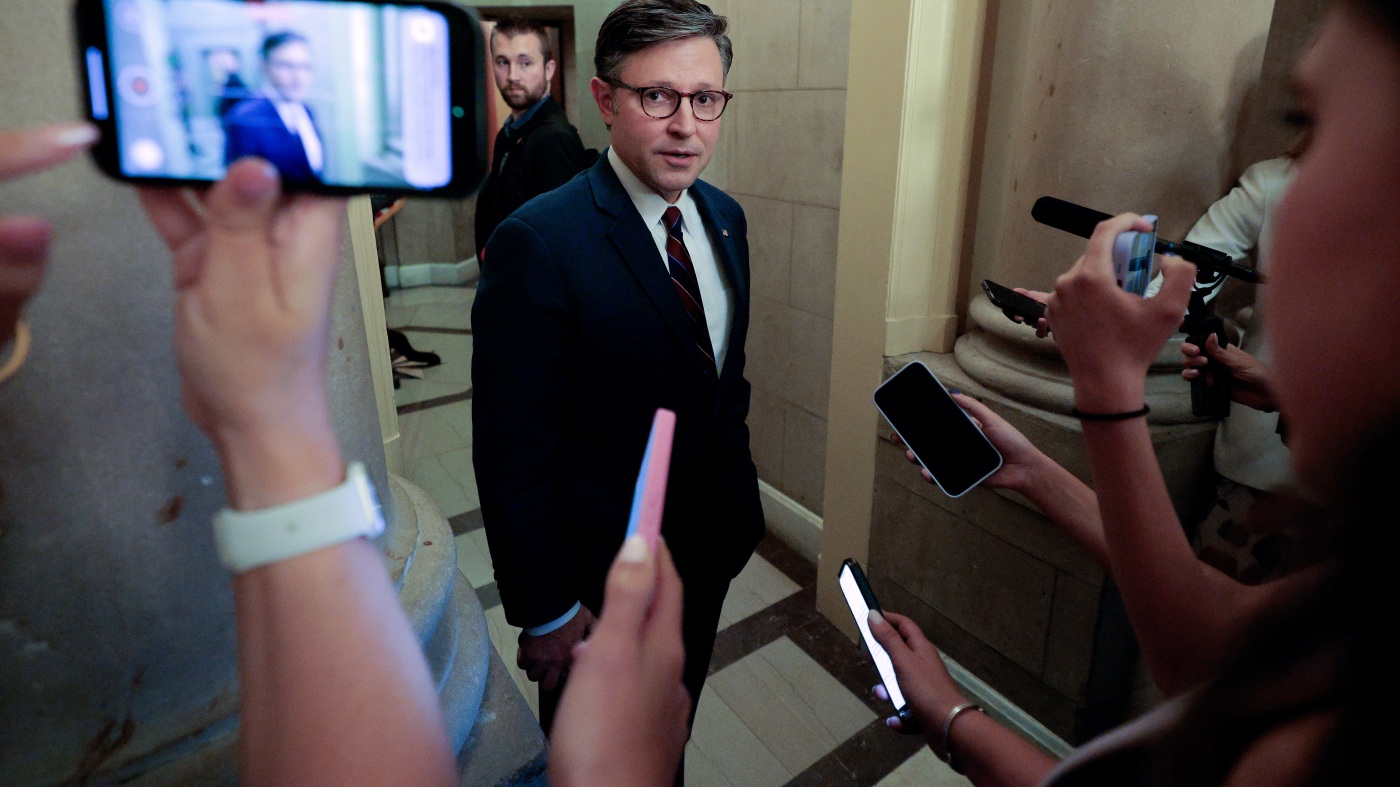The “Megabill” is a sweeping piece of legislation that has sparked intense debate across the United States. This comprehensive bill aims to address multiple facets of American life, including healthcare, gun regulations, and fiscal policy. While proponents argue that the megabill will streamline government operations and stimulate economic growth, critics warn of its far-reaching consequences, particularly in areas like healthcare access and public safety. This analysis explores the core components of the megabill, examining its potential impact on various sectors and stakeholders.
Healthcare: A Transformation with Uncertain Outcomes
The megabill’s proposed changes to healthcare have drawn significant attention, particularly its provisions related to Medicaid, Planned Parenthood, and the Affordable Care Act (ACA). These changes could have profound implications for millions of Americans, particularly those who rely on these programs for essential healthcare services.
Medicaid Cuts: A Looming Crisis for Vulnerable Populations
One of the most controversial aspects of the megabill is its proposed cuts to Medicaid. These reductions in federal funding are projected to impact millions of Americans, potentially leaving them without access to essential healthcare services. The cuts could force states to reduce eligibility, limit benefits, or decrease provider payments, leading to a contraction of the healthcare safety net.
Health policy experts and healthcare workers express serious concerns that these cuts could disproportionately affect vulnerable populations, including low-income families, children, the elderly, and individuals with disabilities. Reduced access to care could lead to poorer health outcomes, increased emergency room visits, and higher overall healthcare costs in the long run. For example, a study by the Kaiser Family Foundation found that Medicaid expansion under the ACA led to significant improvements in health outcomes and financial stability for low-income individuals. The proposed cuts could reverse these gains, leaving many Americans without the care they need.
Planned Parenthood Defunding: Narrowing the Scope of Women’s Health
The megabill also seeks to defund Planned Parenthood, a move that would further restrict access to reproductive healthcare services for many women, particularly those in rural or underserved areas. Planned Parenthood provides a range of essential services, including contraception, cancer screenings, and STI testing and treatment.
Critics argue that defunding Planned Parenthood would create significant barriers to care, potentially leading to unintended pregnancies and increased rates of sexually transmitted infections. The organization itself warns that it will affect its ability to provide critical services. According to a report by the Guttmacher Institute, Planned Parenthood serves nearly 2.4 million patients annually, providing contraceptive services, cancer screenings, and other essential healthcare services. Defunding the organization could have a ripple effect on public health, particularly in areas where access to healthcare is already limited.
The ACA Under Threat: A Step Backward in Healthcare Coverage
The megabill represents a significant step backward in healthcare coverage, with the potential to undo many of the gains made under the Affordable Care Act (ACA). It has the largest potential changes to healthcare since the ACA but in the opposite direction, with less input and worse projected outcomes. By cutting funding and rolling back key provisions, the megabill could leave millions of Americans uninsured or underinsured.
The ACA has been instrumental in expanding access to healthcare for millions of Americans. According to the Centers for Medicare and Medicaid Services, the ACA has led to a significant reduction in the uninsured rate, with over 20 million Americans gaining coverage since its implementation. The megabill’s proposed changes could reverse these gains, leaving many Americans without the healthcare coverage they need.
Gun Regulations: Balancing Safety and Second Amendment Rights
The megabill also includes provisions that would alter gun regulations in the United States. These changes have sparked a heated debate between gun rights advocates and gun control proponents, with both sides expressing concerns about the potential consequences of these changes for public safety.
Easing Restrictions on Gun Accessories: A Contentious Debate
One of the most contentious aspects of the megabill is its proposed easing of restrictions on certain gun accessories, such as silencers. Supporters of these changes argue that they would reduce the cost and burden associated with owning these items, while opponents contend that they would make it easier for criminals to obtain and use deadly weapons.
The proposed changes to gun regulations have sparked a heated debate between gun rights advocates and gun control proponents. The potential consequences of these changes for public safety are a major point of contention. According to a report by the Gun Violence Archive, there were over 40,000 gun-related deaths in the United States in 2020. The proposed changes to gun regulations could exacerbate this public health crisis, making it easier for individuals to obtain and use firearms.
Extending Background Check Validity: A Minor Adjustment with Potential Benefits
One proposed change would extend the validity of background checks for firearm purchases from 30 days to 60 days. This adjustment aims to streamline the process and reduce the administrative burden on gun dealers, while still ensuring that individuals who are prohibited from owning firearms are prevented from doing so.
While this change may seem minor, it could have significant implications for public safety. According to a study by the RAND Corporation, background checks are an effective tool in preventing gun violence. Extending the validity of background checks could help ensure that individuals who are prohibited from owning firearms are prevented from doing so, potentially reducing the number of gun-related deaths in the United States.
Gun Tax Cut: Adding Fuel to the Fire
The megabill includes a gun tax cut. Critics believe that this would only add fuel to the fire. It would give people more access to guns.
The proposed gun tax cut has drawn significant criticism from gun control advocates, who argue that it would make it easier for individuals to obtain firearms. According to a report by the Brady Campaign to Prevent Gun Violence, reducing the cost of firearms could lead to an increase in gun ownership, potentially exacerbating the public health crisis of gun violence in the United States.
Budgetary Impacts: Navigating Debt and Spending Priorities
The megabill also includes provisions that would alter the nation’s fiscal priorities, particularly in areas like the debt limit and tax policy. These changes have raised concerns about the long-term fiscal health of the nation and the potential consequences for economic growth.
Debt Limit Increase: A Necessary Evil or Fiscal Irresponsibility?
The megabill proposes to lift the nation’s debt limit by a significant amount. Lifting the debt limit does not authorize new spending. While proponents argue that this is necessary to avoid a government shutdown and meet existing obligations, critics contend that it would pave the way for further deficit spending and unsustainable levels of debt.
The increase to the debt limit has raised concerns about the long-term fiscal health of the nation. Economists and policymakers are divided on the potential consequences of this action, with some warning of rising interest rates and a decline in economic growth. According to a report by the Congressional Budget Office, the nation’s debt is projected to reach unprecedented levels in the coming decades, potentially leading to a fiscal crisis.
Tax Cuts: Stimulating Growth or Widening Inequality?
The megabill includes a number of tax cuts, primarily benefiting corporations and wealthy individuals. Supporters argue that these tax cuts would stimulate economic growth by encouraging investment and job creation. Critics, however, contend that they would exacerbate income inequality and disproportionately benefit the wealthy at the expense of the middle class and low-income families.
The proposed tax cuts have drawn significant criticism from economists and policymakers, who argue that they would widen the gap between the rich and the poor. According to a report by the Tax Policy Center, the proposed tax cuts would primarily benefit the top 1% of earners, potentially exacerbating income inequality in the United States.
Political Maneuvering: Navigating Partisan Divides
The megabill is being advanced through Congress using a budget process known as reconciliation. This process allows Senate Republicans to pass legislation with a simple majority, bypassing the need for Democratic support. Democrats decry this tactic, arguing that it stifles debate and undermines the principles of bipartisanship.
The Senate Parliamentarian has played a significant role in shaping the final outcome of the megabill. A set of surprisingly sweeping parliamentary rulings is motivating Senate Republicans to try to rework major pieces of the reconciliation bill. These rulings have invalidated certain provisions of the bill, forcing lawmakers to make significant changes in order to comply with Senate rules.
The use of reconciliation to advance the megabill has raised concerns about the democratic process and the potential consequences for bipartisanship. According to a report by the Brookings Institution, the use of reconciliation has increased in recent years, potentially undermining the principles of bipartisanship and consensus-building in Congress.
Conclusion: A Crossroads for American Policy
The “megabill” represents a pivotal moment in American policymaking. Its sweeping provisions have the potential to reshape the healthcare landscape, alter gun regulations, and redefine the nation’s fiscal priorities. As the bill makes its way through Congress, it is essential for lawmakers to carefully consider the potential consequences of their actions and engage in a robust debate to ensure that the final outcome serves the best interests of all Americans. The long-term ramifications of this legislation remain uncertain, but one thing is clear: the decisions made in the coming weeks will have a profound impact on the lives of millions of people for years to come.


